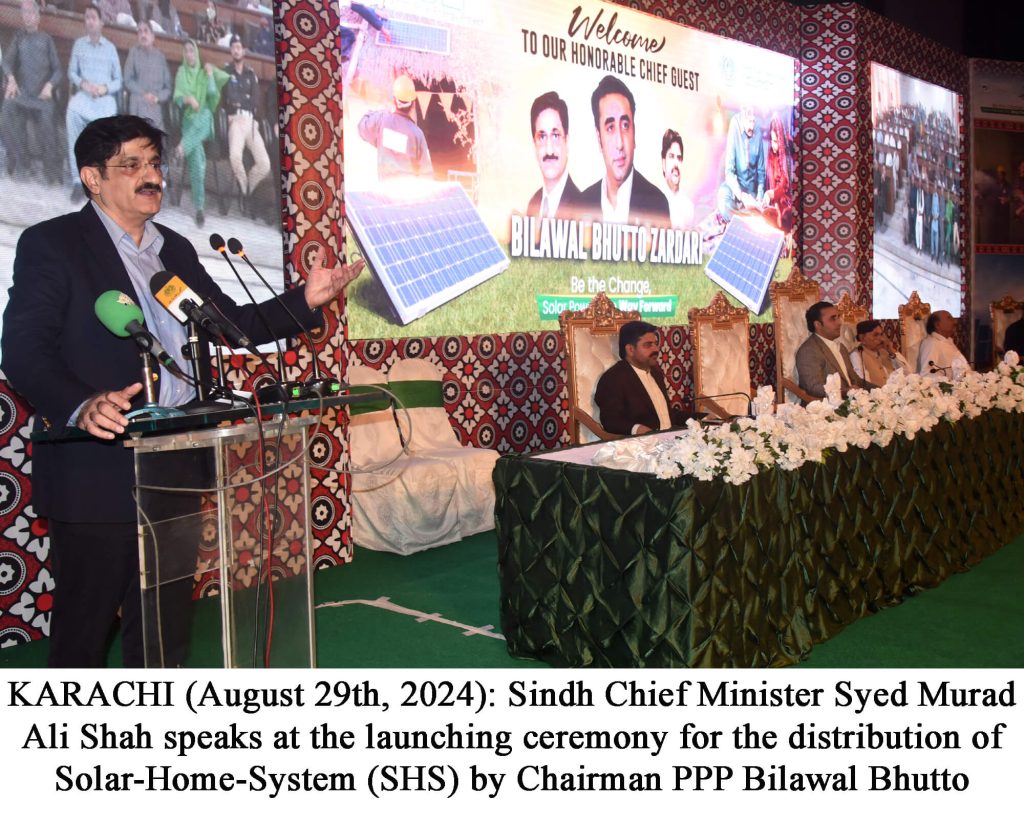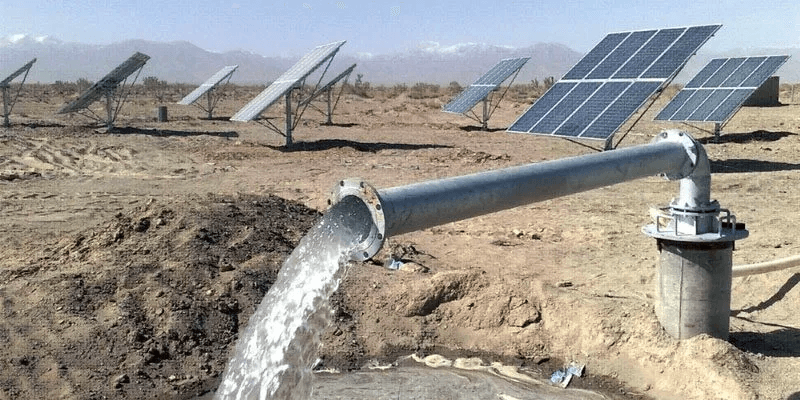In a significant move toward sustainable development, the Pakistan government, led by Sindh Chief Minister Syed Murad Ali Shah, has unveiled a series of initiatives aimed at advancing green energy adoption in the agricultural sector and social infrastructure. These efforts are designed to enhance productivity and improve the socio-economic conditions of low-income communities across the province.
Agriculture is a cornerstone of Pakistan’s economy, contributing approximately 24% to the national GDP, with about 25% of the country’s land dedicated to cultivation. Furthermore, 45% of the workforce relies on the agriculture sector for their livelihood, underscoring the importance of energy reform in this area.
During a high-level meeting at the Chief Minister’s House, Murad Ali Shah outlined plans to transition small farmers’ tube wells to solar power, following directives from Pakistan People’s Party (PPP) Chairman Bilawal Bhutto Zardari. With rising electricity costs putting significant financial pressure on small farmers, many are struggling to operate their diesel-powered tube wells. In response, the Sindh government is offering loans to help small farmers install solar-powered tube wells, significantly reducing their reliance on expensive fuel and grid electricity.
Prime Minister Mian Shehbaz Sharif has also stressed the urgent need for a shift to solar energy, noting that Pakistan currently operates over one million tube wells powered by imported diesel, costing the nation approximately $3.5 billion annually—equivalent to PKR 700 billion. Given Pakistan’s vast solar potential, this transition is essential to providing farmers with affordable, sustainable energy.
The Sindh government has allocated PKR 10.76 billion for the installation of solar-powered tube wells, with each unit expected to cost around PKR 2 million. This investment is projected to significantly reduce carbon emissions, lower fuel import bills, and decrease input costs for farmers, thereby promoting both environmental sustainability and economic resilience.
In addition to supporting small farmers, the government plans to solarize over 4,300 tube wells and 132 pumping stations within the irrigation sector. The initiative will be backed by a financial model that integrates government support with farmer participation. Eligibility for solar-powered systems will be determined using data from the Benazir Income Support Program (BISP), with a poverty scorecard guiding the qualification process.
Chief Minister Murad Ali Shah underscored the importance of transparency in the implementation of these solarization projects and has directed relevant departments to draft comprehensive solarization plans, detailing the scope of installations and funding requirements. This approach aims to ensure an efficient and equitable transition to green energy, ultimately enhancing agricultural productivity and lowering energy costs for rural communities throughout Pakistan.
Beyond agriculture, the Sindh government is expanding its green energy initiatives into social infrastructure. Plans are underway to solarize public buildings, healthcare centers, and schools across the province, reinforcing Pakistan’s commitment to clean energy and sustainable development.
These initiatives represent a major step forward in Pakistan’s efforts to integrate renewable energy into key sectors, positioning the country as a leader in the green energy transition and paving the way for a more sustainable and energy-independent future.
Official Information Source: https://www.facebook.com/SindhCMHouse/posts/pfbid0AiBSj9orUUUWHpevuQ2NEyWr1GPpoMiFETmDyYHaptwAx5XqPb1FMePW8nxsrFvfl



